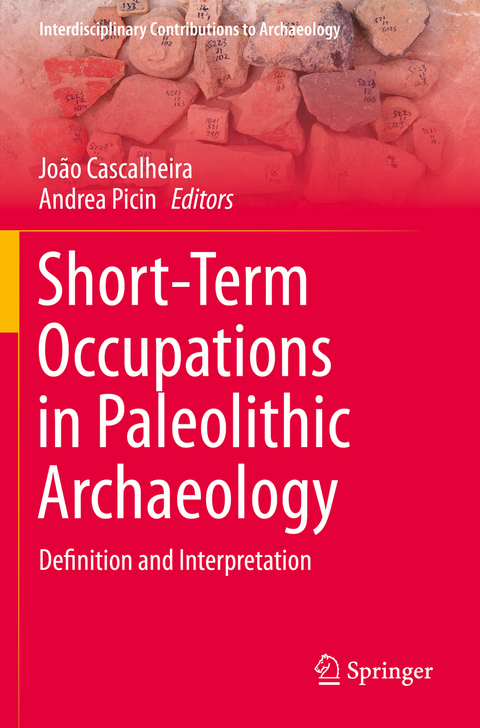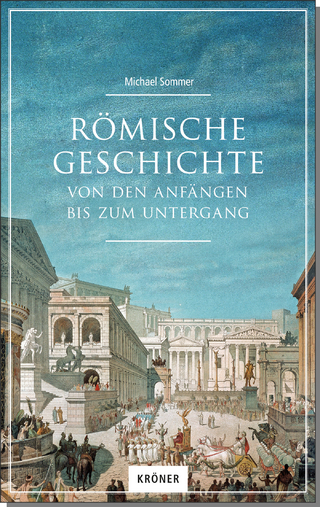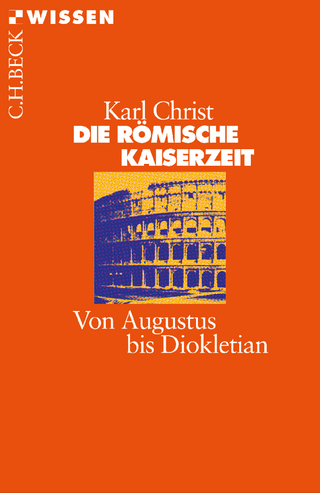
Short-Term Occupations in Paleolithic Archaeology
Springer International Publishing (Verlag)
978-3-030-27405-4 (ISBN)
This edited book aims to provide a new perspective on the identification and interpretation of short-term occupations in Paleolithic Archaeology.
The volume includes contributions with a particular focus on the definition and identification of short-term occupations in Paleolithic contexts, aiming to improve our current knowledge on the topic, both methodologically and interpretatively. The set of chapters coming from a broad spectrum of geographies and chronologies will contribute to the debate on the definition of short-term occupations but also to a better understanding on how past hunter-gatherers communities adapted and moved in different environmental contexts across time.
The in-depth examinations of short-term occupations in different chronologies and environments will shed light on an aspect of the behavioral trajectories of the human species in the management of the territory.lt;p>João Cascalheira received his Ph.D. in Archaeology from University of Algarve (Faro, Portugal), where he is now an Assistant Researcher at the Interdisciplinary Center for Archaeology and Evolution of Human Behaviour (ICArEHB). He specializes in Paleolithic and Mesolithic human ecodynamics and has been developing projects regarding human adaptations to the Last Glacial Maximum in western Europe, the emergence of Anatomically Modern Humans in both Southeast Africa and Iberia, and the development of social complexity among the last hunter-gatherers of the Muge Mesolithic shell midden complex (central Portugal). He is interested mostly in prehistoric stone tool technologies, human adaptations to climate change, and in the innovative use of computational tools and methods in archaeological research.
Andrea Picin is a Post-doctoral Researcher at the Max Planck Institute for Evolutionary Anthropology (Leipzig, Germany), Associate Researcher at the Max Planck Institute for the Science of Human History (Jena, Germany), and Adjunct Professor at the Friedrich Schiller Universität Jena (Jena, Germany). He obtained a B.A. degree in Archaeology from the Università degli Studi di Padova (Padova, Italy), and a Ph.D. degree in Quaternary Science and Prehistory at the Universitat Rovira I Virgili, (Tarragona, Spain). He is a Paleolithic archaeologist specialized in lithic technology. His research focuses on the evolutionary reconstruction of prehistoric hunter-gatherer behaviors, and the influence of climatic fluctuations on the emergence of different technical and subsistence adaptations. He excavated several archaeological sites in Spain, Italy, Sri Lanka, Mongolia and Zambia. He is currently involved in several field projects in Europe.
Preface.- Chapter 1. Introduction to short-term occupations in Paleolithic Archaeology.- Part 1. Methodological and theoretical approaches to short-term occupations.- Chapter 2. The use of lithic assemblages for the definition of short-term occupations in hunter-gatherer prehistory.- Chapter 3. Inside the palimpsest: identifying short occupations in the 497D level of Cova Gran (Iberia).- Part 2. Settlement dynamics in Western-Central Europe.- Chapter 4. Short-term occupations during the Early Middle Paleolithic in Eastern Germany.- Chapter 5. Models of raw materials exploitation as an indicators of Middle Paleolithic mobility. Case studies from uplands of northern Central Europe.- Chapter 6. Take shelter! Short-term occupations of the Late Palaeolithic and the Mesolithic in the French far West.- Part 3. Paleolithic hunter-gatherers and carnivore dens.- Chapter 7. Occupying cave-sites: A case study from Azokh 1 Cave (Southern Caucasus).- Chapter 8. Short-term Neanderthal occupationsand carnivores in the North-East of Iberian Peninsula.- Part 4. Archaeological perspectives from the western Mediterranean.- Chapter 9. A snapshot of a short occupation in the Abric Romaní rock shelter: archaeo-level Oa.- Chapter 10. A high-temporal resolution zooarchaeological approach to Neanderthal subsistence strategies on the south-eastern Iberian Peninsula: El Salt Stratigraphic Unit Xa (Alicante, Spain).- Index.
| Erscheinungsdatum | 03.01.2021 |
|---|---|
| Reihe/Serie | Interdisciplinary Contributions to Archaeology |
| Zusatzinfo | VIII, 296 p. 59 illus., 53 illus. in color. |
| Verlagsort | Cham |
| Sprache | englisch |
| Maße | 155 x 235 mm |
| Gewicht | 466 g |
| Themenwelt | Geisteswissenschaften ► Archäologie |
| Geschichte ► Allgemeine Geschichte ► Altertum / Antike | |
| Schlagworte | ethnographic concepts and archaeological record • hunter- gatherers and the landscape • hunter‐ gatherers and the landscape • mobility strategies and the history of human evolution • technological and subsistence strategies • territory management hunter-gatherers groups • territory management hunter‐gatherers groups • understanding prehistoric lifestyles |
| ISBN-10 | 3-030-27405-5 / 3030274055 |
| ISBN-13 | 978-3-030-27405-4 / 9783030274054 |
| Zustand | Neuware |
| Haben Sie eine Frage zum Produkt? |
aus dem Bereich


